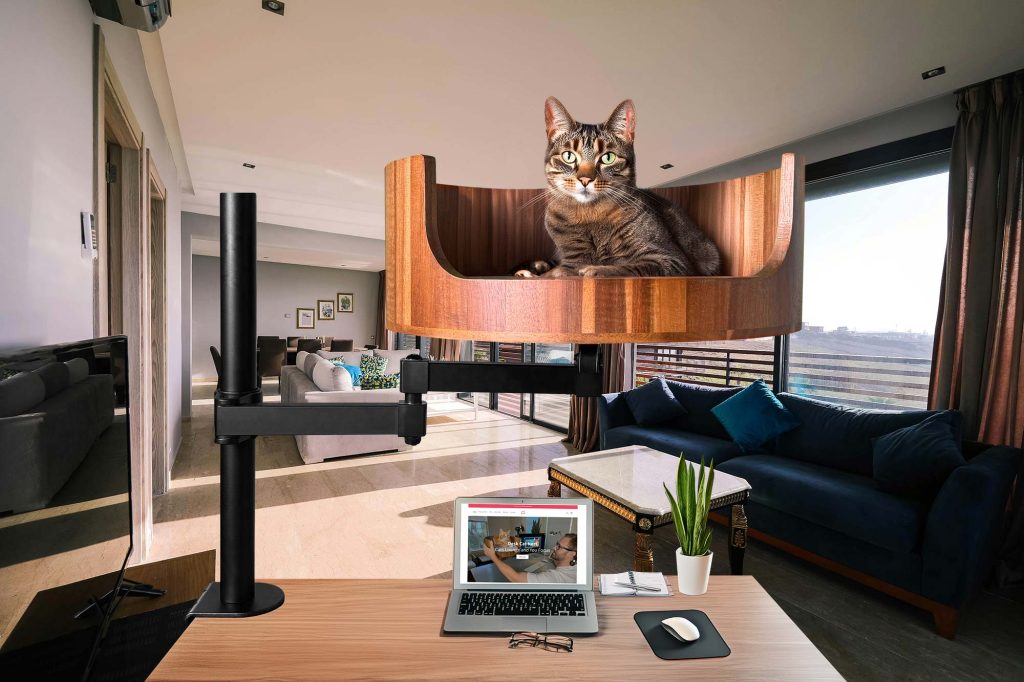If your cat keeps you up at night with constant meowing, you’re not alone. Many cat owners struggle with their feline friends becoming vocal during the nighttime hours. Whether it’s out of boredom, hunger, or simply seeking attention, it can be a frustrating and exhausting experience for both you and your cat. In this article, we will explore the reasons why your cat may be meowing at night and provide some helpful tips on how to address this behavior.
One common reason for nighttime meowing is a lack of stimulation during the day. Cats are natural hunters and thrive on mental and physical stimulation. If they don’t get enough playtime and enrichment during the day, they may become restless and vocal at night. Another possible cause could be hunger or thirst. Make sure your cat has access to fresh water and is fed a balanced diet to prevent nighttime meowing due to hunger. Additionally, medical issues such as diabetes or hyperthyroidism could also be causing your cat’s nighttime vocalizations, so it’s important to rule out any underlying health concerns with a visit to the vet.
1. Understanding the reasons behind your cat’s nighttime meowing is crucial for finding a solution.
2. Providing environmental enrichment, such as interactive toys or a comfortable cat bed, can help alleviate nighttime restlessness.
3. Consistent feeding schedules and ample playtime during the day can help regulate your cat’s nighttime behavior.
4. Creating a calm and quiet sleeping environment for your cat can promote better sleep habits.
5. Consulting with a veterinarian or animal behaviorist may be necessary if your cat’s nighttime meowing persists despite implementing these strategies.
Understanding Why Cats Meow at Night
Cats are naturally more active at night due to their nocturnal instincts. They may meow at night to communicate with other cats, express excitement or anxiety, seek attention or affection from their owners, or even signal hunger. Understanding the reasons behind your cat’s nighttime meowing is crucial in addressing and resolving the issue.
Creating a Comfortable Sleeping Environment
It’s essential to create a comfortable and secure sleeping environment for your cat to help reduce nighttime meowing. Providing a cozy bed or a designated cat nest in a quiet and dimly lit area can encourage restful sleep. Consider incorporating familiar scents, such as bedding or toys, to help your cat feel more relaxed and secure.
Establishing a Routine
Establishing a consistent bedtime routine can help signal to your cat that it’s time to sleep. Engage in calming activities, such as gentle play or grooming, before bed to help your cat wind down. Offering a small meal or treats before bedtime can also help curb hunger-related meowing during the night.
Addressing Medical or Behavioral Issues
If your cat’s nighttime meowing persists despite efforts to create a comfortable sleeping environment and establish a routine, it’s essential to consult with a veterinarian. Underlying medical conditions, such as hyperthyroidism or anxiety, could be contributing to your cat’s behavior. A professional can help diagnose and treat any health issues that may be causing the nighttime meowing. Additionally, a behaviorist can provide guidance on addressing any behavioral issues that may be impacting your cat’s sleep patterns.
Frequently Asked Questions
1. How can the Desk Cat Nest help with my cat’s nighttime meowing?
The Desk Cat Nest provides a cozy and comfortable space for your cat to rest and sleep, which can help reduce their need to meow for attention at night. Cats typically meow due to boredom or the need for stimulation, so having a designated space for them to sleep can help curb this behavior.
2. Will the Desk Cat Nest be comfortable enough for my cat to sleep in all night?
Yes, the Desk Cat Nest is designed with your cat’s comfort in mind. The soft cushion and cozy design provide a warm and inviting space for your cat to relax and sleep peacefully throughout the night.
3. How can I encourage my cat to use the Desk Cat Nest instead of meowing at night?
It may take some time for your cat to adjust to the new sleeping area, but you can encourage them by placing their favorite toys or treats in the nest, and by gently guiding them towards it at bedtime. Consistency and patience are key in helping your cat make the transition to using the Desk Cat Nest.
4. Will the Desk Cat Nest fit on my existing desk?
The Desk Cat Nest is designed to be lightweight and compact, making it easy to place on most desks without taking up too much space. However, we recommend measuring your desk and the nest dimensions to ensure a proper fit before purchasing.
In conclusion, investing in a Desk Cat Bed can be a valuable solution for dealing with a cat that won’t stop meowing at night. Not only does it provide a comfortable and secure sleeping space for your feline friend, but it also helps reduce nighttime disturbances by allowing them to stay close to you while you work or sleep. The elevated design of the Desk Cat Bed ensures that your cat feels safe and secure, helping alleviate their nighttime anxiety and reducing excessive meowing. With its cozy cushion and convenient location, the Desk Cat Bed is a practical and beneficial choice for both you and your cat.


